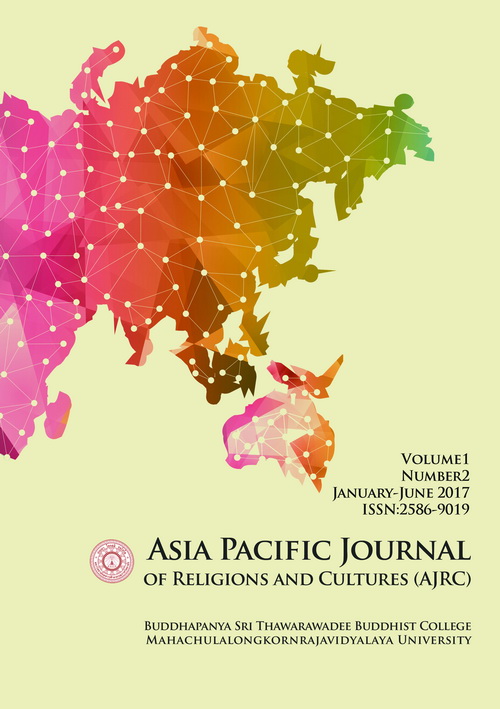In the Pursuit of Peace: Reconsidering Epistemology of Morals in The Right View
Main Article Content
Abstract
Suffering, as defines by T.R.V. Murti is the frustrated will. The frustrated will is the result from the grief of non-acquisition of something; the grief again results from the thirst/clinging that again results from the sense of eternity of the object of desire. The willing of any object of desire under, the wrong notion of the eternity of the existential nature of that object is a result of the confused subjectivity formed on account of the ‘wrong knowledge’ or illicit modifications of the consciousness. The subjectivity is the locus of the moral aspects of existence; it accounts for individual feeling and willing. The concept of the freedom of will is the attainment of the Aprathistita Nirvana in which the individual has nothing for her own and in harmony with the Suchness, Bhutatathatā, extends his modified layers of beings for the sake of the other. The self in confused subjectivity is samsara which leads to moral evil and the critique of the subjectivity is Nirvana.
Article Details
References
Kalupahana, D.J. (1986). Mulamadhyamikakarika of Nagarjuna: The Philosophy of the Middle Way. Delhi: Munsiram Manoharlal Publishers.
Radhakrishnan, S. (1999). Indian Philosophy, Vol. 2. Oxford: Oxford University Press.
Radhakrishnan, S. (1996). Indian Philosophy, Vol. 1. Oxford: Oxford University Press.
Bina Gupta. (1981). Skepticism: Ancient ‘East’ and Modern ‘West’. Indian Philosophical Quarterly, Vol. IX; No. 1 Oct. (1981)
Varghese, Matyhew. (2012). Exploring the Structure of Emptiness. New Delhi: Sanctum Books.
Mohanta, Dilip Kumar. (1999). Cognitive Scepticism and Indian Philosophy. Calcutta: Punthi Pustak.
Ramendranath. (1987). The Dialectic of Nāgārjuna. Vohra Publishers and Distributors, Allahabad, India.
Matilal, B.K. (1986). Perception: An Essay on Classical Indian Theories of Knowledge. Oxford: Oxford University Press
Sharma, C.D. (1987). Critical Suvey of Indian Philosophy. Delhi: Motilal Banarsidass.
Suzuki, D.T. (2000). Outline of Mahayana Buddhism. Delhi: Munsiram Manoharlal Publishers.


